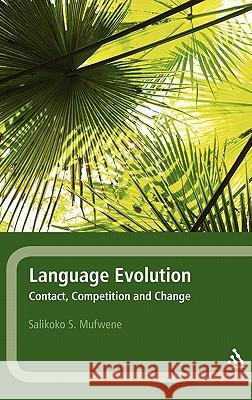Language Evolution » książka
Language Evolution
ISBN-13: 9780826493699 / Angielski / Twarda / 2008 / 376 str.
Languages are constantly changing. New words are added to the English language every year, either borrowed or coined, and there is often railing against the 'decline' of the language by public figures. Some languages, such as French and Finnish, have academies to protect them against foreign imports. Yet languages are species-like constructs, which evolve naturally over time. Migration, imperialism, and globalization have blurred boundaries between many of them, producing new ones (such as creoles) and driving some to extinction.
This book examines the processes by which languages change, from the macroecological perspective of competition and natural selection. In a series of chapters, Salikoko Mufwene examines such themes as:
- natural selection in language
- the actuation question and the invisible hand that drives evolution
- multilingualism and language contact
- language birth and language death
- the emergence of Creoles and Pidgins
- the varying impacts of colonization and globalization on language vitality
This comprehensive examination of the organic evolution of language will be essential reading for graduate and senior undergraduate students, and for researchers on the social dynamics of language variation and change, language vitality and death, and even the origins of linguistic diversity.











